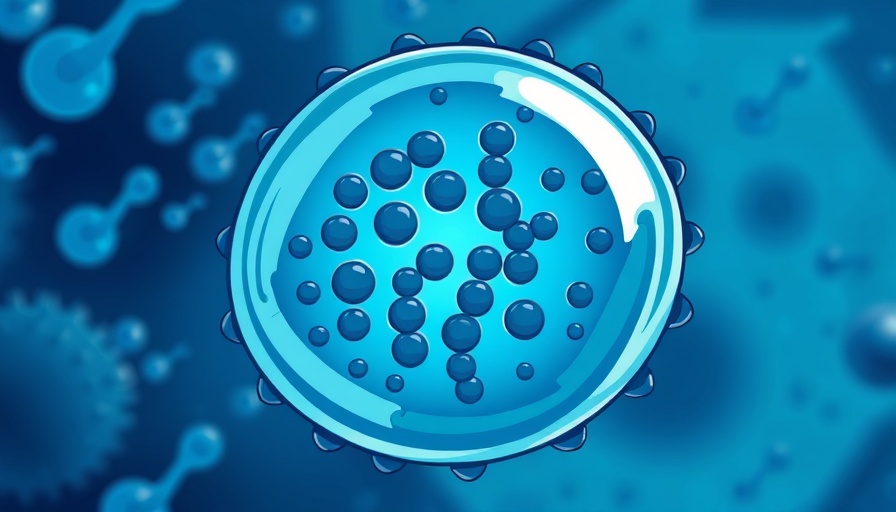
The Complex Role of Mitochondrial DNA in Aging
If you’ve ever had one of those days when you felt like you couldn’t quite get enough energy, or you found yourself inexplicably tired after a late-night binge of Netflix, you might just have mitochondrial DNA (mtDNA) mutations to blame. Mitochondria, the tiny powerhouses of our cells, are responsible for the majority of our energy production. As we age, these organelles accumulate pathogenic mutations that can affect cellular health, particularly in organs like the kidneys.
Understanding Mitochondrial Mutations: Why They Matter
These mutations can lead to dysfunction in crucial processes, affecting everything from energy metabolism to apoptosis—the process that keeps our cells healthy by eliminating those that are damaged. Picture it like a factory that refuses to shut down its broken machinery, leading to a backlog of inefficiency and waste that's hard to manage.
Research indicates that mtDNA mutations primarily accumulate due to oxidative stress, a byproduct of normal metabolic processes. It's that same oxidative stress that has been linked to aging and chronic diseases. Therefore, if you’re interested in longevity and overall health, understanding mitochondrial function is imperative.
Can Diet Impact Mitochondrial Health?
You bet! A healthy diet rich in antioxidants can help mitigate oxidative stress and support the repair of damaged mtDNA. Incorporating colorful fruits and vegetables into your meals not only satisfies your aesthetic cravings but also serves as a delicious strategy for disease prevention. Think of it this way: every time you enjoy a bunch of blueberries or a fresh salad, you're arming your body's defenses against those pesky mitochondrial mutations. Want a tip? Try adding spinach and kale to your smoothies; they’re not just superfoods, they’re superhero foods!
Supplementation: Pro-Active Longevity Strategies
Now, let’s talk about some supplements for longevity. Nutritional interventions like Coenzyme Q10, L-carnitine, and even resveratrol are buzzing in wellness circles for their potential to improve mitochondrial function and combat aging. But remember, it’s not a silver bullet; think of supplements as a booster, not the main event. Pair them with a balanced diet and healthy lifestyle to optimize your healthspan.
Biohacking Your Way to Better Mitochondrial Health
Biohacking enthusiasts are always on the hunt for practical insights that can impact overall wellness. One of the most exciting trends is the emerging research in cellular rejuvenation through intermittent fasting and caloric restriction. These methods challenge your body to adapt and repair itself, reducing the accumulation of those sluggish, pathetically mutated mitochondria.
What Does the Research Say?
The science is clear: as we grow older, our bodies’ ability to repair and maintain healthy mitochondria diminishes. Recent studies have shed light on these debilitating mutations, emphasizing the importance of maintaining cellular health as a component of healthy lifestyle practices. It’s about optimizing every part of your life—from sleep to nutrition—to promote your body’s natural repair systems.
Conclusion: Putting It All Together for Healthspan Optimization
In conclusion, understanding the accumulation of pathogenic mitochondrial DNA mutations sheds light on key aspects of aging and health. To not just extend your life but enhance your quality of life, consider your dietary choices, embrace a holistic wellness approach, and explore biohacking strategies that resonate with your personal health goals. Together, these elements create a multi-faceted strategy for life extension and disease prevention.
Ready to dive deeper into the world of wellness and longevity? Remember, it’s never too late to start prioritizing your health! And in case you’re hungry for more expert health insights and personalized health strategies, be sure to keep an eye out for cutting-edge research in the realm of aging and longevity!
 Add Row
Add Row  Add
Add 




Write A Comment